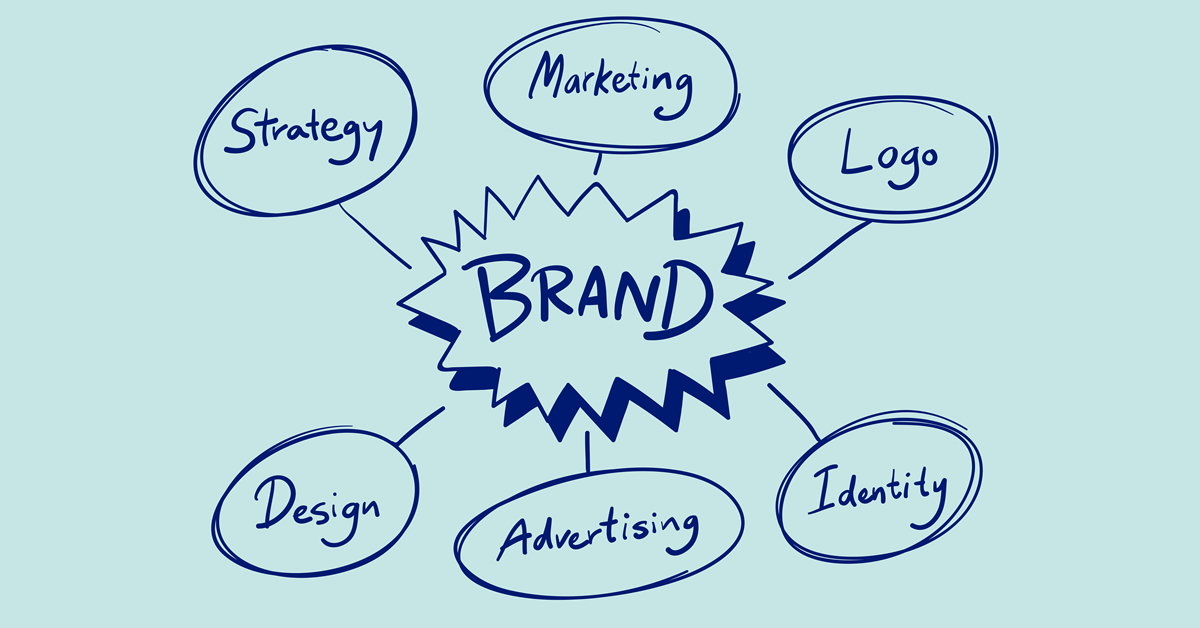The Effect of Robust Branding on Customer Count On and Commitment
Why Durable Branding Is Crucial for Market Management
In today's competitive landscape, durable branding emerges as a critical component for attaining market leadership. A distinct brand name identification not just establishes a firm aside from its rivals yet also cultivates trust and psychological connections with consumers. These elements are vital for cultivating loyalty and encouraging repeat service, yet many organizations forget the much deeper effects of their branding approaches. As we discover the complex nature of branding, it becomes apparent that the risks are high for those who stop working to recognize its importance fit lasting business success. What are the details techniques that can boost a brand to this well-regarded condition?
Recognizing Brand Identity
Consistently identifying the value of brand name identification is essential for any kind of company striving to achieve market management. Brand identification includes the aesthetic aspects, messaging, and overall perception that distinguish a company from its competitors. It serves as a foundation for exactly how customers perceive and engage with a brand name, playing an important function in shaping their assumptions and experiences.
A well-defined brand identity connects the core values and objective of an organization, creating a psychological link with its target market. Aspects such as logos, shade schemes, typography, and tone of voice should align cohesively to communicate a regular message across all systems. This uniformity enhances brand acknowledgment and cultivates consumer loyalty.
Moreover, brand identification is not simply superficial; it mirrors the authenticity and honesty of a business. It needs to be thoroughly crafted to resonate with the intended audience while remaining adaptable to advancing market fads. Organizations that prioritize a strong brand identification can properly distinguish themselves, develop a positive credibility, and grow a loyal client base. Ultimately, a robust brand name identity is crucial for navigating competitive landscapes and maintaining long-term success.
Structure Client Trust
A solid brand name identification lays the foundation for building client trust fund, a key component in accomplishing market leadership. Count on is not just a psychological reaction; it is a tactical property that can considerably affect purchasing choices and brand name commitment. Firms that grow openness, reliability, and consistency in their messaging and actions cultivate a sense of security among customers.
To build this depend on, brand names have to provide on their promises. This suggests guaranteeing that item top quality meets customer assumptions and that service experiences are positive and responsive. Additionally, constant interaction strengthens integrity; when clients know what to expect which their issues will certainly be resolved, their self-confidence in the brand name grows.
Social evidence also plays an essential role in developing trust fund. Favorable testimonials, testimonials, and endorsements from legitimate sources improve a brand name's reputation and can guide possible consumers. Involving with clients via social systems and resolving their issues publicly demonstrates responsibility and commitment.
Distinction in Affordable Markets
In today's jampacked marketplace, differentiation is important for brands seeking to stick out and capture customer focus. With numerous options available, customers are usually overloaded, making it necessary for brands to develop an one-of-a-kind identity that reverberates with their target market. This distinction can manifest through different aspects, including item attributes, prices approaches, client service, and brand messaging.
Efficient differentiation involves not only recognizing what makes a brand name one-of-a-kind however also communicating these differences clearly and constantly. Brands must articulate their value proposition in such a way that addresses certain consumer needs and preferences. For circumstances, a business may concentrate on sustainability, innovative modern technology, or personalized consumer experiences to carve out a particular niche in an affordable landscape.
Furthermore, brand names need to consistently evaluate their affordable atmosphere to adjust and refine their differentiation strategies. This positive strategy ensures that they stay appropriate and enticing to customers as market dynamics advance. Eventually, durable branding that read this article stresses differentiation not only fosters brand loyalty but likewise places a company as a leader in its industry, paving the way for sustained growth and market supremacy.
Psychological Links With Customers
Psychological connections act as an effective stimulant in building enduring partnerships between customers and brand names. It fosters loyalty that transcends plain transactional interactions when customers reverberate with a brand on a psychological level. Brands that effectively stimulate feelings-- whether through storytelling, shared values, or genuine engagement-- create a feeling of belonging for their clients.
These psychological ties can significantly influence acquiring choices, as consumers are often driven by feelings instead of logic. A brand that aligns with consumers' addresses or desires their discomfort points can grow a deep-seated commitment that causes repeat organization and positive word-of-mouth recommendations.
In addition, emotional branding permits firms to differentiate themselves in crowded markets. By touching into the beliefs of their target market, brand names can take a special identification that reverberates deeply, making them remarkable and favored over rivals.
In an age where customers are pounded with selections, a solid psychological link can be the determining element in brand preference. Thus, prioritizing emotional engagement is not simply an advertising and marketing technique; it is a calculated important for brands seeking to develop meaningful partnerships and enhance customer retention.
Long-Term Company Success
Lasting company development depends upon the capacity to cultivate robust branding techniques that resonate with consumers in time. A strong brand name not just distinguishes a business from its competitors but additionally promotes loyalty and trust fund among consumers. This long-lasting relationship is crucial i loved this for making certain repeat organization, which significantly adds to earnings stability and growth.
In a progressively affordable industry, brands that communicate a clear and consistent message are most likely to grow. This consistency reinforces brand name identification, making it less complicated for consumers to select the brand name and recall over others. Robust Branding. Consequently, a well-established brand click this site name can adjust to market changes without shedding its core essence, allowing for advancement without pushing away dedicated consumers
Moreover, robust branding creates a platform for consumer engagement, whereby businesses can gather feedback and adjust their offerings accordingly. This iterative process not just boosts consumer contentment but likewise constructs a neighborhood around the brand, promoting a sense of belonging.
Conclusion

Organizations that focus on a solid brand name identification can successfully distinguish themselves, develop a positive reputation, and cultivate a devoted client base.A strong brand identity lays the groundwork for building client depend on, a key component in achieving market management. A strong brand not only differentiates a business from its rivals however additionally cultivates commitment and count on amongst customers. As a result, a well-established brand name can adapt to market adjustments without losing its core essence, permitting for technology without pushing away dedicated clients.
